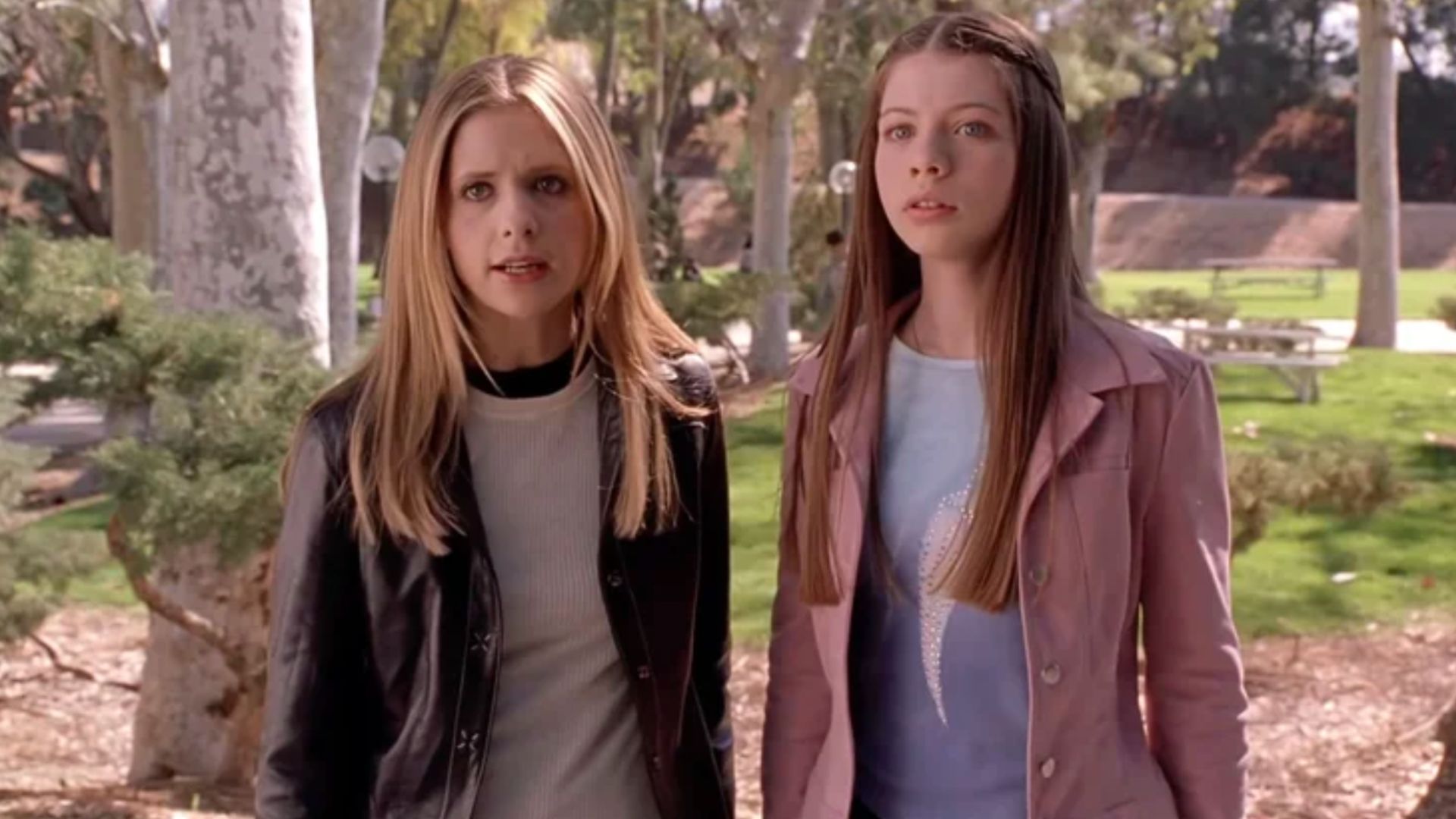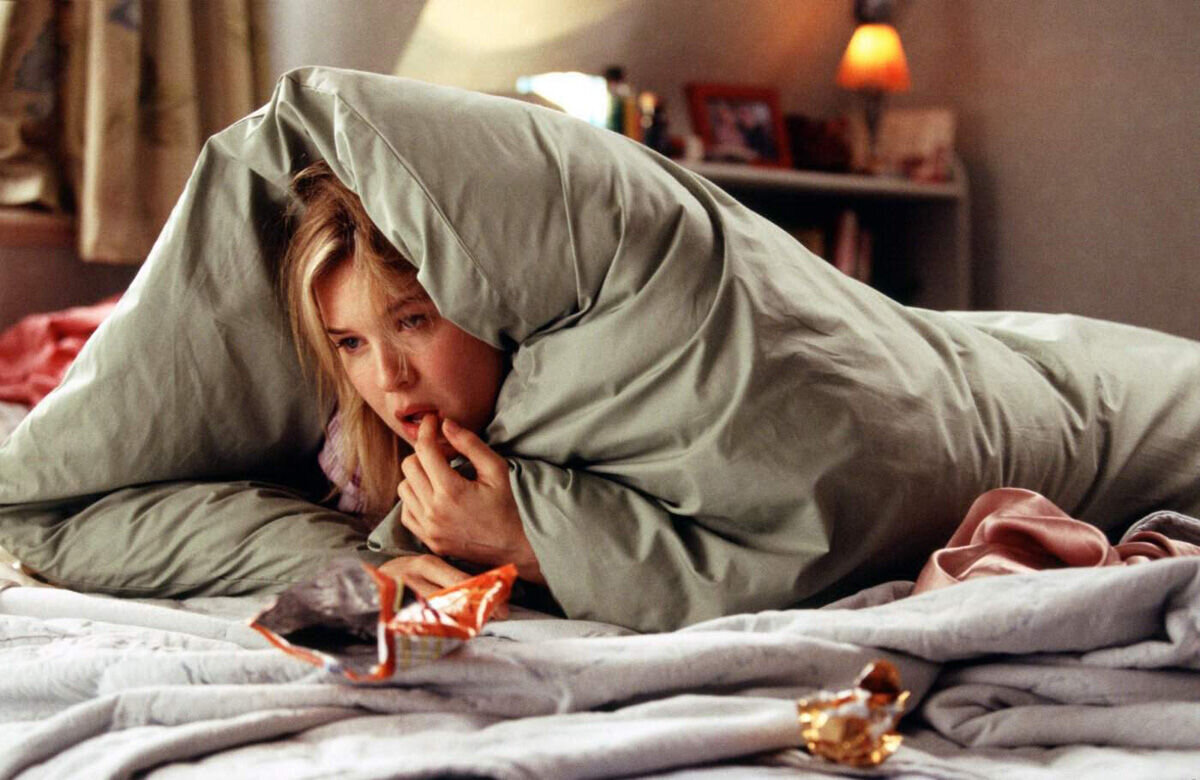Parents might tell us that they love all their children equally and make no difference between them, but we can probably all agree that this is a sweet utopia.
The proof with the “big sister syndrome”, also called “big daughter syndrome” on social media. Completely unofficial, this syndrome nevertheless speaks to many women, if we are to believe a video posted last February on TikTok by the American therapist Kati Morton.
@katimorton The 8 signs of eldest daughter syndrome… #eldestdaughter #siblings #siblingcheck
♬ original sound – Kati Morton, LMFT
This content is blocked because you have not accepted cookies and other trackers. This content is provided by TikTok.
In order to view it, you must accept the use made by TikTok of your data which may be used for the following purposes: to allow you to view and share content with social media, to promote the development and improvement of the products of Humanoid and its partners, show you personalized advertisements related to your profile and activity, define a personalized advertising profile, measure the performance of advertisements and content on this site and measure the audience of this site (find out more)
Manage my choices
According to her, it is a “a term coined to describe the unique pressures and responsibilities placed on the eldest daughter of the family”. Called more often for household tasks than her younger brothers and sisters, the eldest daughter is also the one who carries the most responsibilities in terms of care and emotional labor.
It is up to you, for example, to take care of those younger than you, to take charge of administrative tasks, to provide emotional support to your parents… If this allows them to quickly acquire great maturity, placing this responsibility on their shoulders right from the childhood also has its drawbacks as this big sister role shapes not only their personality, but also their behavior, their relationships with others, and their mental health.
How to explain eldest daughter syndrome?
As San Francisco therapist Dr. Avigail Lev explains to VeryWellMind, parents generally place much higher expectations on their elders in terms of achievement, behavior and responsibility.
«The eldest daughter or the eldest brothers, in general, are a bit like the ‘trial’ siblings because they are the first child. The next child receives better treatment, benefiting from the first child’s learning.”explains Dr. Lev.
This double standard is further accentuated when the first child is a girl. Because she is expected to meet gender stereotypes of being “kind,” “calm,” “docile,” and “responsible,” the older sibling sibling has, implicitly or otherwise, a duty to set an example for her brothers and sisters. . Sometimes they even take on the role of parent when they are not present. Much more is expected of her than if she were her second child, but also if she were her first son.
How to recognize eldest daughter syndrome?
Empowerment from a young age is not without mental health consequences. According to Kati Morton, there are eight clues that show you have eldest daughter syndrome:
- “You have an intense sense of responsibility. »
- “You are ambitious, type A* and highly motivated. »
- “You worry a lot and probably suffer from anxiety. »
- “You have difficulty adopting behaviors that people like. »
- “You have difficulty setting and respecting boundaries. »
- “You blame your brothers, your sisters and your family. »
- “You struggle with guilt. »
- “You are going through a difficult time in your adult relationships. »
*Type A is defined as a hyperactive personality, constantly living in a state of urgency, capable of getting angry easily but also overinvested professionally. He would need to control everything and would be particularly demanding
Since the eldest daughter syndrome is not included in the file Diagnostic and statistical manual of mental disorders official (DSM-5-TR), one might believe that this is purely imaginative. But (and this is where I put on my investigative journalist hat) after talking about it with the editorial team, at least two of my colleagues recognize themselves in this big sister syndrome.
Ariane, who works at to missand that she is the eldest of three girls, explains:
“I am the point of reference in case of a problem: for some reason I am the person the family turns to when they encounter a problem or difficulty (especially administrative). Last Sunday, for example, I spent three hours changing phone plans and the Internet connection in a house I no longer live in. If my mother has to have a worker come to the apartment, she will call me to ask me to telework at home (while my sisters are not working).
I think that since my father was never involved in the family, we had to find another role model, and sometimes I feel like I’ve taken his place since my parents divorced. This is also felt in my other relationships. I am always ready to sacrifice myself to help, I like to feel useful and I find great satisfaction in it. When I fail to help others, I feel a sense of failure. But this personality trait also has a negative side: I am very bad at letting others do it. I like to be in control so that everything gets done the way I want and I have to force myself to delegate.
I am also the organizer of the family: I buy gifts, create prize pools, organize birthdays. My mother always loved gifts and my father was rubbish and made no effort to be original. So as soon as I was old enough, I got into the business of giving gifts. Even today I love giving gifts. I keep a list for every person around me, which I add to as soon as they mention something they miss or would like.
My parents’ expectations, especially in terms of education and “behavior” as teenagers, were extremely high, especially compared to my little sisters. My upbringing was very strict: I was punished for the slightest ‘discrepancy’, my grades had to be above 16 to be acceptable, my parents overly controlled my relationships. As a teenager, all these prohibitions, sometimes unfounded, pushed me to put myself in danger (heavy drug use, risky sexual relationships, etc.) to put myself in opposition to my parents.
Today, at 25, I feel like I still need my mother’s validation because that’s how I learned to earn her love. Sometimes I do things only thinking about when my mother will congratulate me, and that’s what keeps me going. »
I myself, as an older sister (my brother is five years younger than me), recognize myself perfectly in this famous older daughter syndrome. While my brother has always been a very outgoing and happy-go-lucky person (for example, I never saw him stressed about an exam), I always saw myself as the one who had to work twice as hard to get there. Very studious as a teenager, I never had adolescent crises, but for example I developed an anxiety disorder very early.
Even today I am a stressed person about almost everything, very often I feel overwhelmed despite the to-do list engraved in my brain. I feel charged with the mission of succeeding in everything perfectly, otherwise I will feel not only disappointment, but also a sense of guilt. In short, being the eldest daughter in every way messed up.
How to put an end to eldest daughter syndrome?
For Dr. Avigail Lev it is first of all necessary to set limits towards others and take one’s own needs into account. Being the eldest does not mean that you have to face everything alone and let other members of your family rely on you.
Don’t hesitate to ask for help even when you feel the need: being independent doesn’t mean that you also don’t have the right to ask those around you if you can’t face everything alone.
It’s also important to demonstrate self-compassion: be kind to yourself and admit your shortcomings. No one will blame you for proving that you are not a machine.
Finally, Dr. Lev concludes, if you are suffering too much from the effects of eldest daughter syndrome in your daily life and relationships, perhaps you should consider talking to a mental health professional. He says psychotherapy can be a great way to process your experiences and develop new coping skills to improve your behaviors, thoughts, emotions and relationships. “Learning the tools of Schema Therapy to regenerate yourself and heal your inner child involves giving yourself what you were not given as a child and learning to meet the needs that were not met. »
To testify about Madmoizelle, write to us at:
[email protected]
We can’t wait to read you!
Add Madmoizelle to your favorites on Google News so you don’t miss any of our articles!
Source: Madmoizelle
Mary Crossley is an author at “The Fashion Vibes”. She is a seasoned journalist who is dedicated to delivering the latest news to her readers. With a keen sense of what’s important, Mary covers a wide range of topics, from politics to lifestyle and everything in between.





